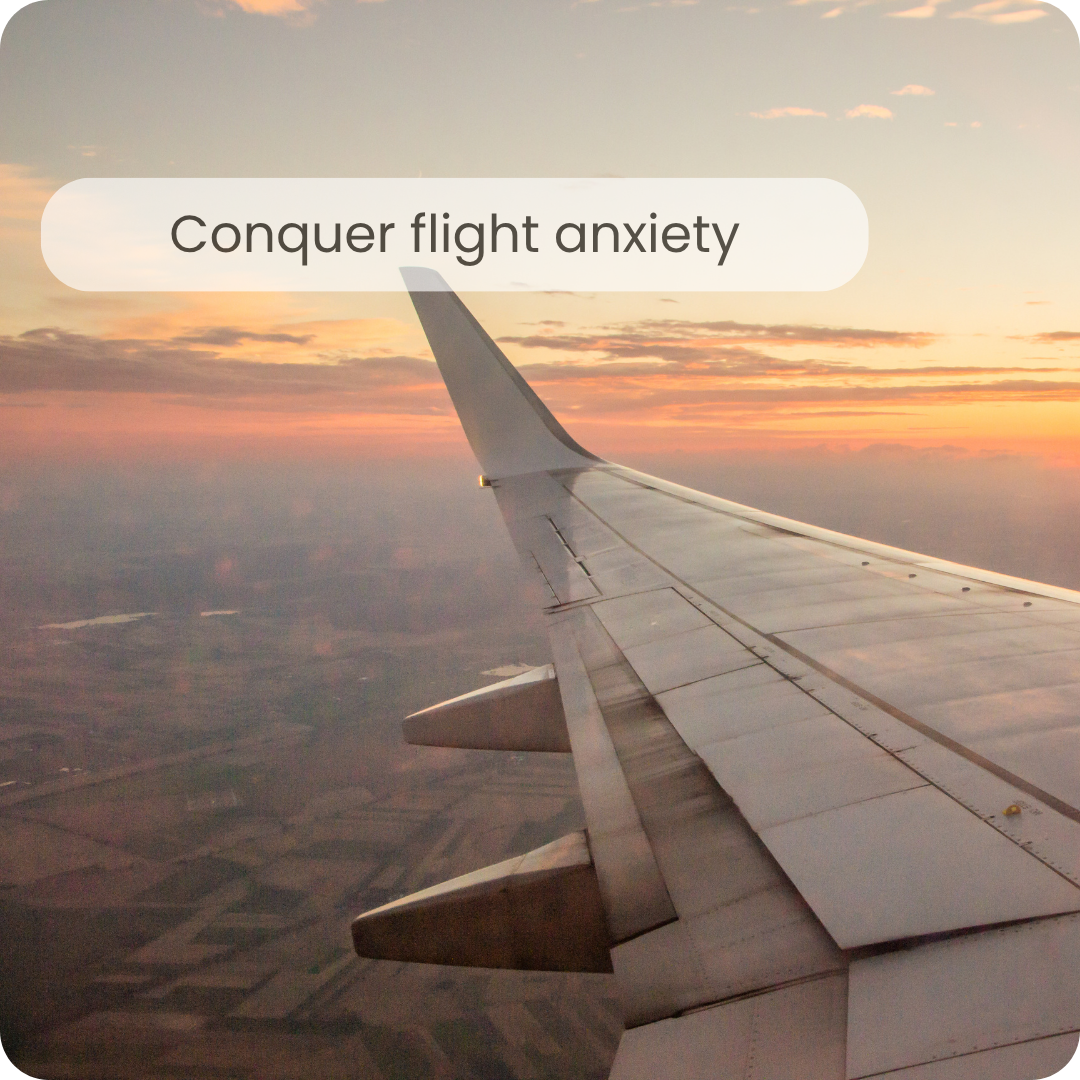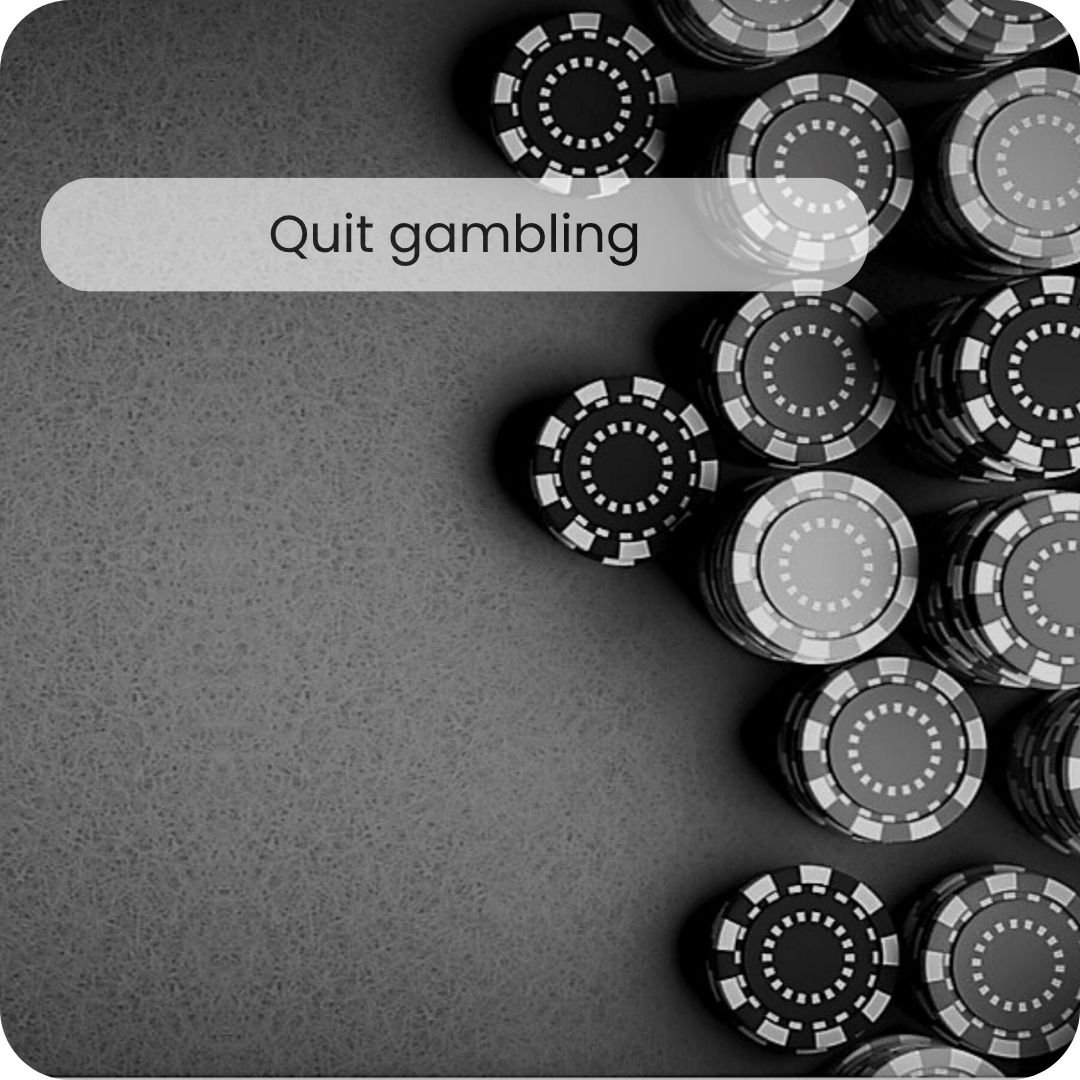
Overcome stress and anxiety, today
Trouble focusing, sleepless nights, feeling out of control? Immediate solutions that will help you regain control and change your life.
Immediate relief and long-term well-being
After just one Reveri session:
Feel in control and stress-free today, and every day for the rest of your life
Dr. Spiegel’s life-changing technique involves a combination of breathwork, visualization and hypnotherapy to rapidly rewire negative patterns, habits and behaviors.
“The best app ever, designed with ordinary folks like me in mind...”
-Jack (App Store Review)
How Reveri works
Interactive audio sessions with the world's leading psychiatrist
We guide you on your journey to overcome anxiety and find lasting peace
Reduce anxiety levels, track your progress and restore balance to your life
Backed by 45 years of clinical research
Reveri was created by Dr. David Spiegel, a world-leading psychiatrist at Stanford University and one of the most respected experts in the field of hypnotherapy.
Real stories of transformation
Reveri helped these people achieve their goals, and it can do the same for you.
Self-hypnosis for Stress: Hypnotherapy for Anxiety
Self-hypnosis for stress relief and anxiety is profoundly powerful because it works directly with your subconscious mind to shift your perspective. Compared to other stress relieving techniques that may only work at the surface level, self-hypnosis can address underlying causes of stress and anxiety. Hypnotherapy for stress and anxiety helps retrain your brain to respond to stress in a way that gives the power back to you. With a toolkit in your back pocket you can practice self-guided hypnosis on your schedule. The self-hypnosis app for better sleep also helps users struggling with anxiety-induced insomnia, providing a natural way to calm the mind and improve sleep quality.

Achieve mental clarity today
Hypnosis App for Stress And Anxiety Relief
Stress and anxiety can feel unavoidable in our fast-paced world. With stressors such as a demanding job, financial instability, never-ending to-do lists, and simply the weight of everyday worries, it’s important to find ways to manage stress and anxiety. If you struggle with stress and anxiety, you’ve probably tried things like meditation, deep breathing, exercise, and maybe even medication to try and alleviate stress and anxiety. In search of a natural approach to reduce stress and anxiety that’s highly effective, you may have found online hypnotherapy for anxiety.
FAQ
-
Hypnosis is a natural therapy that can effectively treat stress and anxiety, potentially offering more benefits than other common treatments. Hypnosis is designed to guide individuals into a focused state, during which they tap into the subconscious mind, where the root of their worries lie. By unlocking the beliefs beneath the surface, self-hypnosis for anxiety and stress helps people shift their mindset to regain control of their emotions.
Stress and anxiety share similarities, and are often used interchangeably, but are different responses. Stress is typically caused by an external trigger causing short-term impact, although it can persist beyond the scope of its origin. Anxiety is an excessive worry that remains even when no actual danger is present. Typically, the root cause of anxiety is from a fear of a negative future event that has not come to pass. In pursuit of a natural therapy that addresses the sources of stress and anxiety, individuals often become curious about hypnosis. Follow your curiosity to discover all of the benefits that hypnosis offers.
-
Hypnosis for anxiety is proven to be a highly effective way of reducing anxiety according to a recent meta-analysis. The meta-analysis showed individuals receiving hypnosis therapy experienced less anxiety compared to the 79% that received other task assignments. The authors of the meta-analysis argued that hypnosis might be as effective, if not more effective, than other treatments. The meta-analysis also suggests that effectiveness can be scaled when hypnosis is used in parallel with other treatments for anxiety. In addition, compared to taking anti-anxiety medications, hypnosis offers a natural approach that’s much safer and free of side effects.
-
Hypnosis can help reduce day-to-day worries which are often associated with anxiety. Our hypnotherapy sessions guide users into a focused state, during which they tap into the subconscious mind, where the root of their worries lie. By accessing the beliefs beneath the surface, self-hypnosis for anxiety helps people shift their mindset to regain control of their emotions. As a result, you can retrain your brain to respond calmly to worries, rather than react emotionally.
-
Hypnosis is a natural therapy that can reduce anxiety symptoms and interferences with daily life. It puts you in a state of focused attention to reset your mind and break deeply rooted habits. Regardless of the cause of your anxiety, hypnosis can help address it to produce life-changing results. Those that struggle with anxiety often require ongoing efforts to manage it. Given that hypnosis is a natural therapy, it’s a sustainable option that can deliver more benefits than just short-term reduced anxiety.
-
With the Reveri hypnosis app you can access self-guided and customized hypnotherapy for stress sessions. In just one 10-minute session, 84% of users reported feeling less stress and anxiety. Our hypnotherapy for anxiety relief sessions guide users into a focused state, during which they tap into the subconscious mind, where the root of their worries lie. By unlocking the beliefs beneath the surface, self-hypnosis for anxiety and stress helps people shift their mindset to regain control of their emotions. Additionally, hypnosis for intrusive thoughts can be an effective tool for those struggling with repetitive, unwanted thoughts that contribute to stress and anxiety.
-
Just about anyone can benefit from hypnosis for anxiety. Hypnosis for anxiety is not just for those that battle panic attacks or debilitating anxiety symptoms. Dealing with anxiety or a feeling of anxiousness does not require a diagnosis. Hypnosis puts you in a state of focused attention to reset your mind and break deeply rooted habits. Regardless of the cause of your anxiety, hypnosis can help address it to produce life-changing results.
-
Hypnotherapy helps reduce and manage stress by meeting you where you’re at on a deep level and reframing negative thought patterns. In parallel, you can find relief from other symptoms that can be associated with stress and anxiety such as sleep, attention span, mood swings, and more. With more control over your emotions, you can regain balance in your life. You can alleviate anxiety and manage stress, the power is within you.
Research: On Hypnosis in Stress Management
Stress and anxiety are terms that are often used interchangeably and indeed share many similarities. To take a step further into understanding their uniqueness, we can imagine them as two sides of the same coin; stress is typically caused by an external trigger (e.g., a negative experience, medical concern, or global events). Stress can impact us in the short term, but it could also persist beyond the scope of its origin. Anxiety is excessive worrying that remains even when there is no actual danger. Anxiety often stems from a fear of a negative future event (whether realistically possible or not) that has not yet come to pass. Both stress and anxiety can go hand in hand with emotional (e.g., irritability, anger), cognitive (e.g., difficulty concentrating or falling asleep), and physical symptoms (e.g., muscle aches, digestive issues, fatigue).
-
Anxiety is the most common mental health symptom in the U.S. [1]. While experiencing some stress and anxiety symptoms is normal throughout life (and, at times, can even have helpful outcomes), the clinical threshold (i.e., a disorder) is where such symptoms persist to the point of distress and interference with daily life. More than 1 in 4 adults in the U.S. will meet the criteria for anxiety disorder in their lifetime [2]. In the U.S. alone, more than 70% of people report stress that impacts their physical or mental health, and about 1 in 3 people describe their stress as “extreme” [3]. A recent meta-analysis (a statistical summary of findings across different studies) found that more than 23% of people across the globe report clinically significant psychological and posttraumatic stress symptoms [4]. Not surprisingly, the incidence of stress and anxiety has increased during the COVID-19 global pandemic [5]. This is particularly concerning as prolonged stress can negatively impact hormonal, immune, and central nervous system functioning [6].
Can hypnosis help?
A recent meta-analysis found hypnosis to be a highly effective way of reducing anxiety [7]. In the studies included, people who received hypnosis showed more anxiety reduction than about 79% of those who received other task assignments (control conditions), and more than 84% at the longest follow-up after the treatment ended. Moreover, the meta-analysis’ authors argued that hypnosis might be as effective, if not more effective, than other treatments such as mindfulness for anxiety [7]. Indeed, hypnosis reduced anxiety symptoms even better when combined with other psychological interventions (such as cognitive-behavioral therapy; CBT). This suggests that the hypnosis might even be more helpful if you are already receiving treatment for anxiety.
Although not tested directly on COVID-19-related distress, hypnosis has been demonstrated to effectively decrease stress related to medical procedures [8]. Several studies have found that self-hypnosis training not only reduces stress but could negate the stress-related impact on the immune system and enhance immune function [6] [9].
Why is hypnosis a better alternative?
One in 12 adults in the U.S. takes anti-anxiety medication (anxiolytics, sedatives, and soporifics) [10]. Such drugs come with a variety of risks and side effects. For example, they may cause injurious falls and increased risk of fractures in aging adults [11], risk of negative outcomes after surgery [12], and risk of preeclampsia in women with early pregnancies [13]. Not only that, anti-anxiety medication use is associated with an increased mortality rate [14]. Long-term use of anti-anxiety medication can lead to drug habituation, resulting in needing more of the drug to get the same benefits. According to the Substance Abuse and Mental Health Services Administration (SAMHSA), the treatment need for and abuse of benzodiazepines (a common family of drugs for anxiety) tripled between 1998 and 2008 [15]. One factor that can lead to long-term use of anti-anxiety medication is low resilience to stress [16].
Apart from anti-anxiety medication, people might self-medicate (attempt to reduce their symptoms independently) with or without prescribed substances to manage their stress and anxiety symptoms. For example, more than 18% of those with a clinical generalized anxiety disorder self-medicate with alcohol.
Hypnosis is safer than most medications, easy to try, and significantly reduces anxiety even if you are already receiving relevant treatment [7,9].
Bottom Line
Hypnosis can effectively reduce anxiety and stress symptoms, potentially even more effectively than other common treatments. The benefits of hypnosis apply in different contexts and are not limited to specific forms of anxiety or stress. Using hypnosis for anxiety may also help you reduce effects of stress on your body, for example by normalizing levels of stress hormones and improving sleep. Given its safety and ease and how prevalent anxiety and stress symptoms are, we strongly recommend that you give it a try.
References
1. Facts & Statistics | Anxiety and Depression Association of America, ADAA. https://adaa.org/understanding-anxiety/facts-statistics.
2. Remes, O., Brayne, C., van der Linde, R. & Lafortune, L. A systematic review of reviews on the prevalence of anxiety disorders in adult populations. Brain Behav. 6, e00497 (2016).
3. Boyd, D. Daily Life. The American Institute of Stress https://www.stress.org/daily-life.
4. Cooke, J. E., Eirich, R., Racine, N. & Madigan, S. Prevalence of posttraumatic and general psychological stress during COVID-19: A rapid review and meta-analysis. Psychiatry Res. 292, 113347 (2020).
5. Salari, N. et al. Prevalence of stress, anxiety, depression among the general population during the COVID-19 pandemic: a systematic review and meta-analysis. Glob. Health 16, 57 (2020).
6. Morey, J. N., Boggero, I. A., Scott, A. B. & Segerstrom, S. C. Current directions in stress and human immune function. Curr. Opin. Psychol. 5, 13–17 (2015).
7. Valentine, K. E., Milling, L. S., Clark, L. J. & Moriarty, C. L. The Efficacy of Hypnosis as a Treatment for Anxiety: A Meta-Analysis. Int. J. Clin. Exp. Hypn. 67, 336–363 (2019).
8. Schnur, J. B., Kafer, I., Marcus, C. & Montgomery, G. H. Hypnosis to manage distress related to medical procedures: A meta-analysis. Contemp. Hypn. J. Br. Soc. Exp. Clin. Hypn. 25, 114–128 (2008).
9. Hammond, D. C. Hypnosis in the treatment of anxiety- and stress-related disorders. Expert Rev. Neurother. 10, 263–73 (2010).
10. Moore, T. J. & Mattison, D. R. Adult Utilization of Psychiatric Drugs and Differences by Sex, Age, and Race. JAMA Intern. Med. 177, 274–275 (2017).
11. Bakken, M. S. et al. Risk of hip fracture among older people using anxiolytic and hypnotic drugs: a nationwide prospective cohort study. Eur. J. Clin. Pharmacol. 70, 873–880 (2014).
12. Ward, N. et al. Anxiolytic medication is an independent risk factor for 30-day morbidity or mortality after surgery. Surgery 158, 420–427 (2015).
13. Bernard, N. et al. Use of antidepressants and anxiolytics in early pregnancy and the risk of preeclampsia and gestational hypertension: a prospective study. BMC Pregnancy Childbirth 19, 146 (2019).
14. Parsaik, A. K. et al. Mortality associated with anxiolytic and hypnotic drugs—A systematic review and meta-analysis. Aust. N. Z. J. Psychiatry 50, 520–533 (2016).
15. Substance Abuse and Mental Health Services Administration. Substance Abuse Treatment Admissions for Abuse of Benzodiazepines. https://atforum.com/documents/TEDS028BenzoAdmissions.pdf (2011).
16. Hiyoshi, A. et al. Stress resilience in adolescence and subsequent antidepressant and anxiolytic medication in middle aged men: Swedish cohort study. Soc. Sci. Med. 134, 43–49 (2015).
About the author:
Afik Faerman, Ph.D. is a postdoctoral scholar at Stanford University. He completed his doctoral training in clinical psychology with an emphasis in neuropsychology, and his clinical training at the University of California, San Francisco (UCSF) and Baylor College of Medicine in Houston, TX. Afik’s research centers on identifying key neurocognitive mechanisms in clinical change, focusing on hypnosis, pain, and sleep. His research was supported and acknowledged by the American Psychological Association, the Society for Clinical and Experimental Hypnosis, and the American Society for Clinical Hypnosis.












































